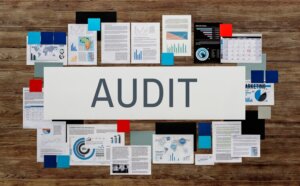Table of Contents
ToggleIn today’s global supply chain, businesses are under increasing pressure to demonstrate product quality and ethical practices in labour standards, health and safety, environmental management, and business integrity. Buyers, suppliers, and stakeholders want assurance that moral standards are being met throughout the supply chain, and this is where SMETA (Sedex Members Ethical Trade Audit) audits come into play. If you are a business owner, supplier, or part of a multinational supply chain, understanding what an SMETA audit is and how long it remains valid is essential.
Understanding SMETA Audit: Sedex Members Ethical Trade Audit
A SMETA audit is conducted according to the Sedex Members Ethical Trade Audit methodology. Sedex (Supplier Ethical Data Exchange) is a global membership organisation that provides businesses with a platform to share and access ethical supply chain data. The SMETA audit is one of the world’s most widely recognised and respected ethical audit formats. The main aim of an SMETA audit is to assess a company’s working practices, ensuring they align with ethical trade standards and international labour laws. It goes beyond checking for compliance; it highlights areas for improvement and helps businesses build stronger, more responsible supply chains.
Types of SMETA Audits: Difference Between 2-Pillar and 4-Pillar SMETA Audit
Depending on business needs, there are two types of SMETA audits:
1. Sedex 2-Pillar SMETA Audit
The Sedex 2-Pillar SMETA Audit is an ethical trade audit focusing on Labour Standards and Health & Safety within a business. It is conducted under the Sedex Members Ethical Trade Audit framework, which helps organisations ensure fair wages, safe working conditions, and compliance with local and international regulations. The audit examines working hours, freedom of association, child and forced labour prevention, and workplace safety practices. Many global buyers require suppliers to undergo this audit to demonstrate social responsibility. By completing a Sedex 2-Pillar SMETA Audit, companies can enhance trust, improve transparency, and strengthen ethical supply chain practices.
2. Sedex 4-Pillar SMETA Audit
The Sedex 4-Pillar SMETA Audit is a comprehensive ethical trade audit that goes beyond the 2-pillar requirements of Labour Standards and Health & Safety by covering Environment and Business Ethics. This audit helps businesses demonstrate firm commitments to responsible sourcing, fair labour, safe workplaces, sustainability, and ethical practices across their supply chain. Many international buyers and retailers prefer suppliers with 4-pillar certification as it reflects higher accountability and transparency. By completing a Sedex 4-Pillar SMETA Audit, companies can build stronger global partnerships, reduce risks, and showcase their dedication to sustainable and ethical business operations.
Note:- If most of your buyers request ethical labour and safety compliance only, a 2-Pillar audit may be sufficient. However, a 4-Pillar audit will help you stay competitive and trusted in the market if you work with international brands that emphasise sustainability and responsible sourcing.
Understanding the SMETA Audit Checklist
The SMETA audit checklist is a structured guide that auditors use to evaluate a company’s compliance with ethical trade standards. It is based on the ETI Base Code (Ethical Trading Initiative) and relevant international labour laws. The checklist ensures that all areas of ethical business practice are reviewed thoroughly. Key components include:
- Labour Standards
- Health & Safety
- Management Systems
- Environment
- Business Ethics
This checklist helps identify risks, highlight areas for improvement, and ensure companies meet global buyer requirements for responsible sourcing and ethical operations.
How Long Is a SMETA Audit Valid For?
A common question businesses ask is: “Once I complete a SMETA audit, how long is it valid?”
The validity of an SMETA audit generally depends on buyer requirements, industry standards, and the audit outcome. However, in most cases, an SMETA audit is valid for 1 year (12 months). This means businesses are expected to undergo a new audit annually to maintain ethical standards. Depending on the audit findings or specific buyer policies, some companies may request re-audits sooner.
Factors Affecting SMETA Audit Validity
1. Audit Results
If the audit identifies critical non-compliances (e.g., forced labour, unsafe working conditions), buyers may require a follow-up audit much sooner than 12 months. If only minor issues are identified, the standard 1-year validity usually applies.
2. Buyer Requirements
Different buyers may have their own policies. Some may accept audits valid for 1 year, while others may require updates every 6 months.
3. Changes in Business Operations
Buyers may request an updated audit sooner to ensure compliance if there are significant changes in your supply chain, workforce, or site operations.
4. Industry Standards
Specific industries with higher risks (e.g., agriculture, apparel, or food processing) may demand more frequent audits than lower-risk ones.
Preparing for an SMETA Audit
Since SMETA audits cover multiple areas of business operations, preparation is key. Here are a few essential steps:
- Understand the Requirements: Review the four pillars (labour, safety, environment, and ethics) and map them against your business practices
- Documentation: Prepare policies, employee records, safety reports, and environmental compliance documents. Ensure they are accurate and up-to-date.
- Employee Awareness: Train employees on workplace rights, safety measures, and company policies. Auditors often interview employees directly.
- Internal Audits: Conduct internal reviews before the actual audit to identify and address gaps.
- Continuous Improvement: Don’t wait for the audit to highlight issues—proactively work on improving conditions, processes, and systems throughout the yea
Conclusion
A SMETA audit is a globally recognised ethical audit that evaluates an organisation’s labour standards, health and safety, environmental practices, and business ethics. It helps businesses gain credibility, ensure transparency, and access global markets. Typically, SMETA audits are valid for 12 months, after which a re-audit is required to maintain compliance, though some buyers may request earlier reviews based on findings. By consistently addressing non-conformities and upholding strong ethical standards throughout the year, companies can not only pass their SMETA audits but also build a responsible and sustainable supply chain that fosters long-term trust.
Preparing for a SMETA Audit? We’ll help you stay compliant and audit-ready
Talk to our experts to ensure smooth SMETA 2-Pillar or 4-Pillar certification and maintain ethical standards
Contact UsFAQ
The scope of an SMETA audit covers four main areas: Labour Standards, Health & Safety, Environment, and Business Ethics. Depending on whether it is a 2-Pillar or 4-Pillar audit, the scope may include only labour and safety or extend to environmental management and ethical business practices.
Most SMETA audits are valid for 12 months. After that, companies must undergo a re-audit to maintain compliance. However, buyers may request audits sooner if non-compliances are found or if business operations change significantly.
Audit results, buyer requirements, industry standards, and operational changes within the company can influence the validity.
It builds trust with buyers, ensures compliance with ethical trade laws, improves workplace practices, provides global recognition, and helps companies access international markets.
Preparation includes understanding the requirements, maintaining proper documentation, training employees, conducting internal audits, and focusing on continuous improvement throughout the year.




